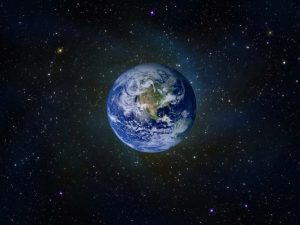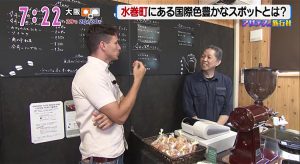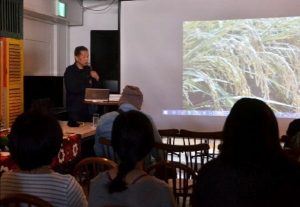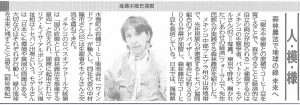公開書簡
2011年4月26日
宛先:世界のリーダーの皆様
差出人:ノーベル平和賞受賞者有志
原子力より再生可能エネルギーを選んでください:世界のリーダーに対する
ノーベル平和賞受賞者による呼びかけ
ウクライナのチェルノブイリ核災害から25回目の記念日に、そして日本に壊
滅的打撃を与えた巨大地震と津波から2カ月あまり後、記名した私たちノーベ
ル平和賞受賞者は再生可能エネルギー源を約束することで、より安全な、そし
てもっと平和な未来に投資するよう、皆様にお願いします。いまこそ原子力発
電はクリーンでも安全でも手頃でも無いエネルギー源だということを認識する
時です。
福島原子力発電所の損傷の結果、空気中に、水中に、そして食品に含まれる放
射能のため、日本の人々のいのちが危険にさらされているということに、私た
ちは深く動揺しています。もし世界が現在使われている原子力利用から段階的
に脱却するならば、次世代を担うすべての人々、そしてすでに過剰な被害を受
けてしまった日本人も、より確実に平和で安全な人生を送れるだろうと私たち
は固く信じています。
「チェルノブイリ事故から25年後、事態は改善されていると主張する人々が
何人かいます。私はそうは思いません」と言うのは、チェルノブイリ除去作業
者(清掃作業に従事した)の一人、ミコラ・イザイエフさんです。「私たちの
子どもたちは汚染された食べ物を食べて病気になり、我々の経済は破壊されて
います。」イザイエフさんは日本で働いている除去作業者のことを理解するこ
とができると話しています。イザイエフさんと同じように、日本の除去作業員
はおそらく原子力の安全についてあまり疑問を抱かなかったのでしょう。
北東海岸に沿って津波の全威力を被った町の一つ、気仙沼市の商店主の声に耳
を傾けてください。「放射能は極めて恐しいです。それは津波以上のものです。
津波は目で見えますが、放射能は目に見えません。」
悲しい現実は、日本で起きた核放射能の危機が、これからも他の国でまた起こ
りえると言うことです。それはすでに旧ソ連のウクライナのチェルノブイリ原
発(1986)、米国スリーマイル島原発(1979)、そして英国ウィンズ
ケール/セラフィールド(1957)で起きたことでもあります。核事故は地
震や津波のような自然災害に起因して発生しますし、人的ミスや不注意でも起
こります。全世界の人々は同様に原子力発電所に対するテロ攻撃の可能性をも
恐れています。
けれども放射能の懸念は核事故だけではありません。核燃料サイクルのそれぞ
れの工程で放射能は放出されます。まず、ウラン採掘のボーリングに始まり、
その後も数千年にわたり有害であり続けるプルトニウムを含む核廃棄物から何
世代もの間にわたって放射能の放出が続きます。何年も研究を続けてきたにも
かかわらず、米国のように核エネルギー計画を持つ国は「使用済」核燃料を安
全に、しかも安定した状態で保管する方法を見つけるという困難な課題を解決
できていません。一方、毎日止めども無く使用済燃料が生み出されています。
原子力発電の提唱者は原子力発電政策が核兵器用の原料を供給するという事実
に直面しなくてはなりません。事実これは、イランの核開発計画の裏に潜むも
のとして注目され心配されていることです。核エネルギーを追い求めることの
膨大な脅威を原子力産業がどんなに無視したとしても、ただ軽視したり無視し
たから消えてなくなるというような問題ではないのです。
さらに、核エネルギーの厳しい経済的な真実に直面しなくてはなりません。原
子力は自由市場で他のエネルギーとは競争をしません。なぜならそんなことは
出来ないからです。原子力は一般の納税者によって法外な費用がまかなわれる
エネルギー選択です。原子力産業は施設建設、賠償責任限度額、汚染除去、健
康管理に対する賠償保険費用を負担する広範囲にわたる政府交付金?納税者の
お金?を受け取ってきました。私たちはもっと責任を持ってこの公的資金を新
しいエネルギー源へ投資することができます。
世界中に現在400基を超える原子力発電所があり、自然災害や政変に見舞わ
れるリスクの高いところが多くあります。これらの発電所は世界の全エネル
ギー供給の7%足らすしか供給していません。世界のリーダーである皆さんは
力を合わせて、この少量のエネルギー源を他の容易に利用可能な、非常に安全
な、そして持続可能な供給源で置き換え、低炭素と非核の未来へと私たちの社
会を移行させていくことができます。
私たちはごく最近日本で発生したような自然災害による大惨事を止めることは
できませんが、より良いエネルギー源を選択するために一緒に力をあわせるこ
とができます。私たちは化石燃料と原子力から段階的に脱却し、クリーンエネ
ルギー革命に投資することができます。それはすでに進行中です。過去5年間
に、風力や太陽光発電からの新エネルギーが世界的規模で、原子力発電よりも
ずっと多くなりました。世界的に太陽光や風力、その他の再生可能エネルギー
源からの収益が2010年には35%も急上昇しました。これら再生可能エネ
ルギー源に投資することは雇用も創設するでしょう。
再生可能エネルギー源は平和な未来への強力な鍵の1つです。だからこそ、世
界中の人々の多く、特に若者たちが、政府の方向転換を待たず、すでに自分た
ちでその方向へと歩み始めているのです。
各国が低炭素で非核の未来を目指すことによって、核拡散を拒絶し再生可能エ
ネルギー資源を支持する世界的な市民運動と共同関係を結び、増大しながら影
響力を広げている勢力を広げていくことができます。皆さんもぜひこのような
人々に合流し、次世代だけではなく私たちの惑星そのものを守り支える強力な
遺産を生み出していくように呼びかけます。
敬具
ベティー・ウィリアムス アイルランド(1976)
マイレード・マグワイア アイルランド(1976)
リゴベルタ・メンチュ グアテマラ(1992)
ジョディー・ウィリアムス 米国(1997)
シリン・エバディ イラン(2003)
ワンガリ・マータイ ケニア(2004)
デズモンド・ツツ大主教 南アフリカ(1984)
アドルフ・ペレス・エスキベル アルゼンチン(1980)
ホセ・ラモス・ホルタ大統領 東ティモール(1996)
・
<以下、原文>
OPEN LETTER
April 26, 2011
To: World Leaders
From: Nobel Peace Laureates
Choose Renewable Energy Over Nuclear Power: Nobel Peace Laureates to World Leaders
On the twenty-fifth anniversary of the Chernobyl nuclear disaster in Ukraine–and more than two months after the massive earthquake and tsunami that devastated Japan–we the undersigned Nobel Peace Laureates ask you to invest in a safer and more peaceful future by committing to renewable energy sources. It is time to recognize that nuclear power is not a clean, safe or affordable source of energy.
We are deeply disturbed that the lives of people in Japan are being endangered by nuclear radiation in the air, in the water and in the food as a result of the breakdown at the Fukushima nuclear plant. We firmly believe that if the world phases out its current use of nuclear power, future generations of people everywhere–and the Japanese people who have already suffered too much–will live in greater peace and security.
“Twenty-five years after Chernobyl, some people claim things are getting better. I disagree,” says Mykola Isaiev, a Chernobyl liquidator (a person who helped clean up the site). “Our children are sick from eating contaminated food and our economy is destroyed.” Isaiev says he can relate to the liquidators now working in Japan. Like him, they probably did not question much the safety of nuclear power.
Consider the words of a shopkeeper in Kesennuma, one of the towns that bore the full force of the tsunami along the northeast coast: “That radiation thing is extremely scary. It is beyond a tsunami. A tsunami you can see. But this you cannot see.”
The sad reality is that the nuclear radiation crisis in Japan can happen again in other countries, as it already has in Chernobyl in the former Ukraine SSR (1986), Three Mile Island in the United States (1979) and Windscale/Sellafield in the United Kingdom (1957). Nuclear accidents can and do result from natural disasters–such as earthquakes and tsunamis–and also from human error and negligence. People around the globe also fear the possibility of terrorist attacks on nuclear power plants.
But radiation is not just a concern in a nuclear accident. Each link in the nuclear fuel chain releases radiation, starting with drilling for uranium; it then continues for generations because nuclear waste includes plutonium that will remain toxic for thousands of years. Despite years of research, countries with nuclear energy programs such as the United States have failed to solve the challenge of finding safe and secure storage for “spent” nuclear fuel. Meanwhile, every day more spent fuel is being generated.
Nuclear power advocates must confront the fact that nuclear power programs provide the ingredients to build nuclear weapons. Indeed, this is the underlying concern with regards to Iran’s nuclear program. While the nuclear industry prefers to ignore this huge threat in pursuing nuclear energy, it does not go away simply because it is downplayed or ignored.
We must also face the harsh economic truth of nuclear energy. Nuclear power does not compete on the open market against other energy sources, because it cannot. Nuclear power is an exorbitantly expensive energy option that is generally paid for by the taxpayer. The nuclear industry has received extensive government subsidies–taxpayer money–for underwriting of construction, liability caps and insurance for clean up and health costs. We can more responsibly invest this public money in new sources of energy.
There are presently over 400 nuclear power plants in the world–many, in places at high risk for natural disaster or political upheaval. These plants provide less than 7% of the world’s total energy supply. As world leaders, you can work together to replace this small amount of energy from other readily available, very safe and affordable sources of energy to move us towards a carbon-free and nuclear-free future.
We can’t stop natural disasters such as those that just occurred in Japan, but together we can make better choices about our energy sources.
We can phase out fossil fuels and nuclear power and invest in a clean energy revolution. It’s already underway. Globally in the last five years there has been more new energy coming from wind and solar power than from nuclear power plants. Global revenue from solar, wind and other renewable energy sources surged 35% in 2010. Investing in these renewable energy sources will also create jobs.
Renewable energy sources are one of the powerful keys to a peaceful future. That’s why so many people around the world–especially young people–are not waiting for governments to make the switch, but are already taking steps in that direction on their own.
Committing to a low-carbon, nuclear-free future will enable countries to partner with and expand the growing and increasingly influential global citizen’s movement that rejects nuclear proliferation and supports renewable sources of energy. We ask you to join them and create a powerful legacy that will protect and sustain not only future generations but also our planet itself.
Sincerely,
Betty Williams, Ireland (1976)
Mairead Maguire, Ireland (1976)
Rigoberta Menchu Tum, Guatemala (1992)
Jody Williams, USA (1997)
Shirin Ebadi, Iran (2003)
Wangari Maathai, Kenya (2004)
Archbishop Desmond Tutu, South Africa (1984)
Adolfo Perez Esquivel, Argentina (1980)
President Jose Ramos Horta, East Timor (1996) His Holiness the Dalai Lama (1989)
https://www.nobelwomensinitiative.org/home/article/no-to-nuclear-power-nobel-laureates






